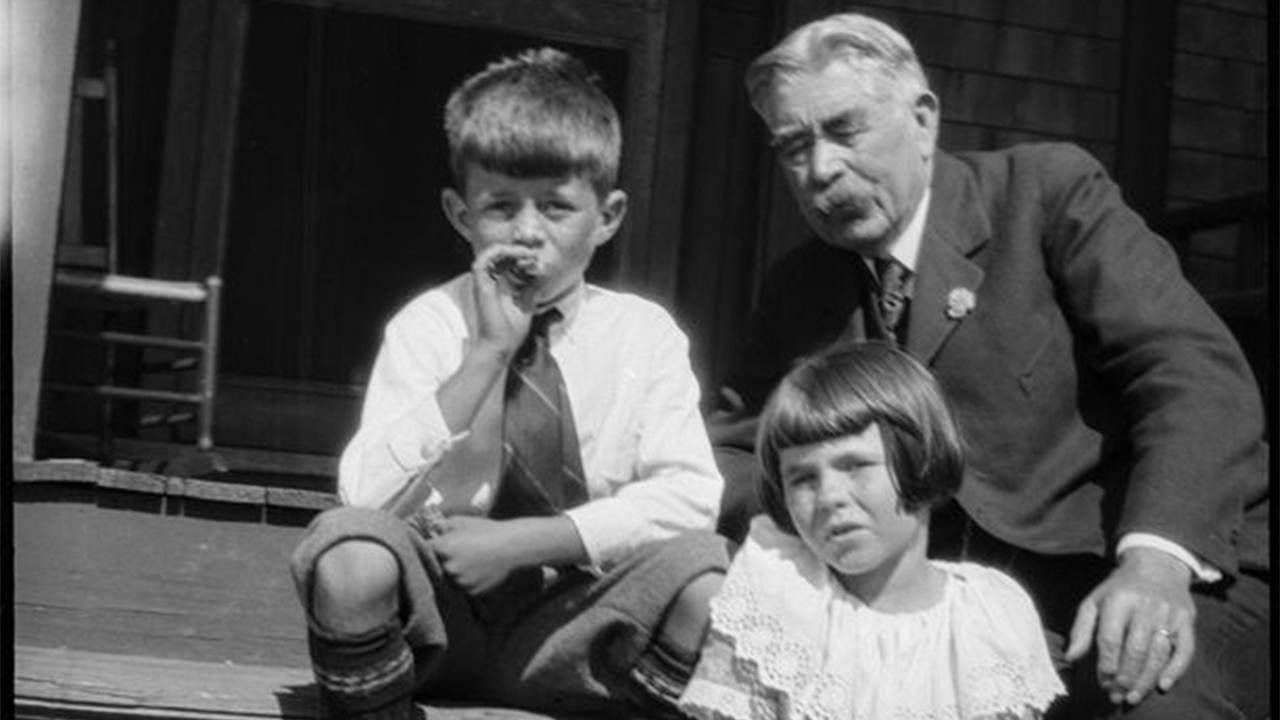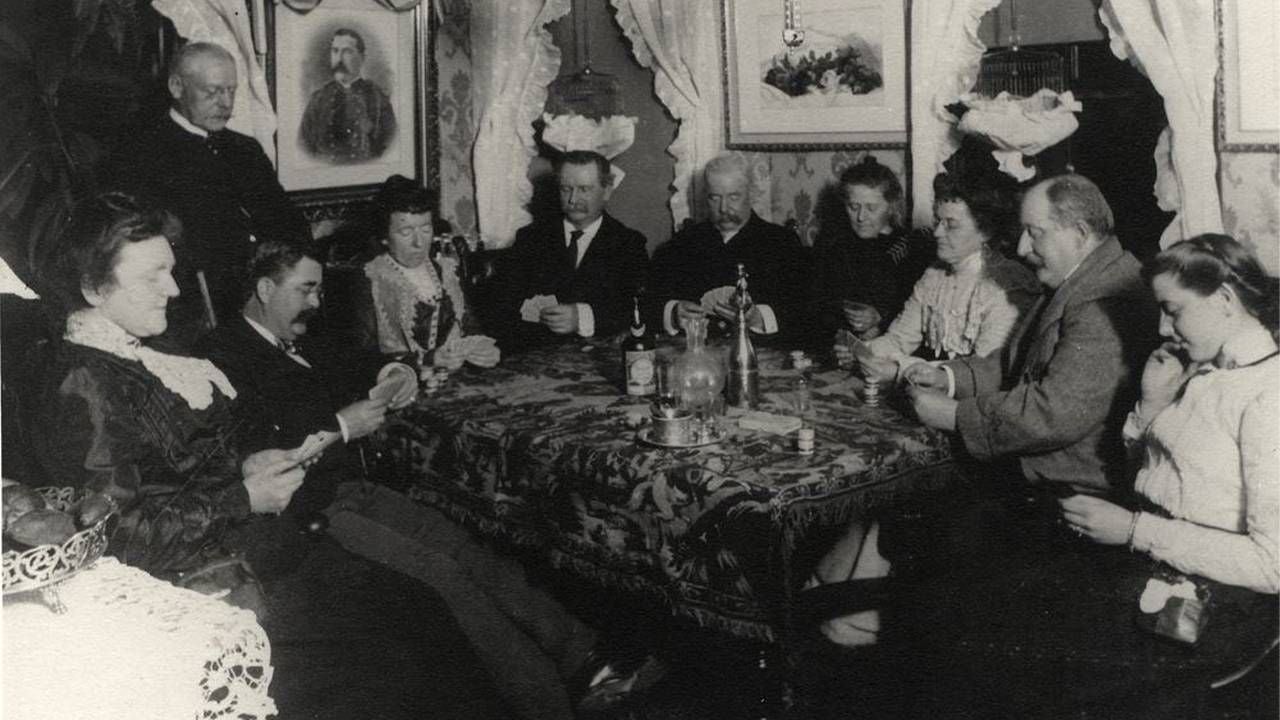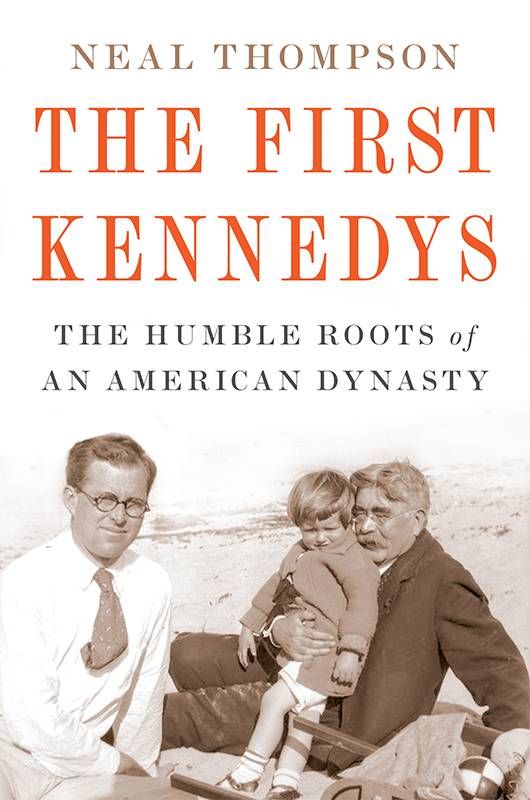The Overlooked First Generation of the Kennedy Family
The life of Bridget Kennedy, JFK's great-grandmother, inspired author Neal Thompson to learn more about his own Irish immigrant grandmother, also named Bridget
For author Neal Thompson, researching and writing his new book, "The First Kennedys: The Humble Roots of An American Dynasty," hit close to home.
As the second-generation grandson of an Irish immigrant named Bridget, who worked as a maid, and after the death of her husband, had to raise three children while living in public housing, Thompson could relate to the similarly inspiring story of President John F. Kennedy's great-grandmother.

Bridget Murphy arrived in the U.S. in the 1840s, during an early wave of Irish immigration, worked as a maid, and married a barrel maker named Patrick Kennedy. They had five children, but their happiness proved short-lived.
Tuberculosis claimed Patrick's life in 1858, forcing Bridget to find work as a hairdresser and later to run her own grocery store and rent out apartments — all while raising the first generation of American Kennedys on her own.
"There were plenty of people with a bust of JFK on the mantle who worshipped that family, but mine didn't."
Thompson — a former newspaper reporter and the author of five other books, including biographies of Robert Ripley of "Believe It or Not" fame and astronaut Alan Shepard — started thinking about the Kennedy beginnings when he reported on the death of John F. Kennedy, Jr., in a 1999 plane crash.
"I wasn't focused on the Kennedys at all growing up," Thompson recalls. "I was raised Catholic and went through sixteen years of Catholic school through high school and college. There were plenty of people with a bust of JFK on the mantle who worshipped that family, but mine didn't."
Full Circle Moments
The experience of researching "The First Kennedys" sporadically over several decades brought Thompson full circle, inspiring him to visit Ireland several times, explore his own family roots, and become a naturalized Irish citizen. During the writing, he drew further inspiration from his memories of his own family's Bridget.
"The thing I tried to do when I was writing the book, especially when I was writing about Bridget Kennedy, was to try to channel my Irish immigrant grandmother," Thompson says. "I tried to visualize her when I was writing scenes about Bridget Kennedy. It helped me to develop this new connection to her and brought her back to life in a way."
Thompson talks about the challenges of depicting the Kennedy ancestors as real people, JFK's perspective on his family origins, and how the book made him reconsider his own views on this storied American family.
Next Avenue: This origin story of the Kennedys had never been told in this level of detail. Why was it the right time to publish this book?
Neal Thompson: It's something I tinkered with for years, but what really drove it was the election of 2016 and all the talk of sending immigrants back and building a wall. I realized it's the same rhetoric, sometimes word for word, that Irish immigrants and really every immigrant class, has heard. I wanted to tell the prelude to the saga of Camelot, where it really, truly began for the Kennedys in America. I wanted to explore the contrast between the Kennedys of today and the Kennedys of the 1800s who were facing down chants of 'send them back.'

It must be exciting to publish this book as the world is reopening from pandemic lockdowns and get to interact directly with readers. What's it been like to take the book on the road and hear people's reactions?
In Boston, a lot of people were shocked to discover this piece of the Kennedy story that they had never heard before. It was gratifying to hear people say that to discover something new about the Kennedys was kind of a thrill. The second reaction I get was about the way the Irish were treated back then. They were one of the first waves of immigrants from another country and to hear the details of how poorly they were treated and the hatred of them was pretty revealing to me and the people I've talked to.
Little Known History of the Kennedys
Trying to bring these real people to life proved a major research challenge. You had access to the recently archived papers of P.J. Kennedy —JFK's paternal grandfather — as well as newspaper accounts of the period, genealogical sites, and the National Archives, but scant personal information about Bridget and Patrick, nor any photos. How did you flesh out their characters?
At times I was ready to throw up my hands. I didn't want to make stuff up. I come from a journalism background — I didn't want to use writerly tricks or create fake dialogue. I wanted to know what the experience was actually like for Bridget and her family. I relied on the experiences of others around her who were living the same life at the same time. I found a lot of letters by and from Irish maids, many of them named Bridget.
"Even if they did mention their humble roots, which was rare, it was this male focus and no recognition that I was able to find of Bridget. But it all stems from her."
For P.J. Kennedy, I was able to find the diary of one of his classmates and was able to imagine what life was like for P.J. as well. The JFK Library had the papers of P.J. Kennedy, and that helped me get into his head and what he was thinking and about what a generous person he was.
JFK, who visited Ireland during his presidency and was known to invoke his family history in his speeches, seemed to understand the power of his roots, in contrast to his father, Joseph P. Kennedy, who rarely mentioned it. How do you account for this generational difference?
I would have assumed that all of the Kennedys would appreciate their Irish past. But Joe just wanted to be known as an American — not an Irish American, but a full-on American. He wanted to quickly move on and put that mythology of the humble immigrant beginnings behind them. That sensitivity to his immigrant past skipped Joe but really did resonate with some members of the family, including JFK.
Giving Credit Where It's Due
At the same time, their grandmother, Bridget, didn't seem to get proper credit.
Even if they did mention their humble roots, which was rare, it was this male focus and no recognition that I was able to find of Bridget. But it all stems from her. The Kennedy family wouldn't have happened without her. It could have ended right there with her losing her husband and first son [who died as a baby]. She deserves a ton of credit and is this missing historical figure. Even when JFK goes to Ireland in 1963 and gives a shout out to his great-grandfather the barrel maker coming to America, he doesn't mention her.

As you delved into this story, how did it change any preconceptions you had about the Kennedys?
I was surprised by how much hatred Bridget was confronted with when she got to America. I knew we were a nation that discriminated against people who didn't look and sound like the existing population. I knew there were laws against immigration. I didn't know about gangs of thugs that would parade down streets with bricks and threaten to burn down their homes and churches or would threaten anyone outside polling stations and would threaten anyone who didn't look like a native American. They didn't want them to vote, they didn't want them to become citizens, and they didn't want them to run for elected office.
I developed a renewed appreciation of the Kennedys by learning about these inspiring first Kennedys. I was gratified to bring the overlooked first generation to life and to see how quickly they rose from literally nothing to become this impactful, beloved family.

